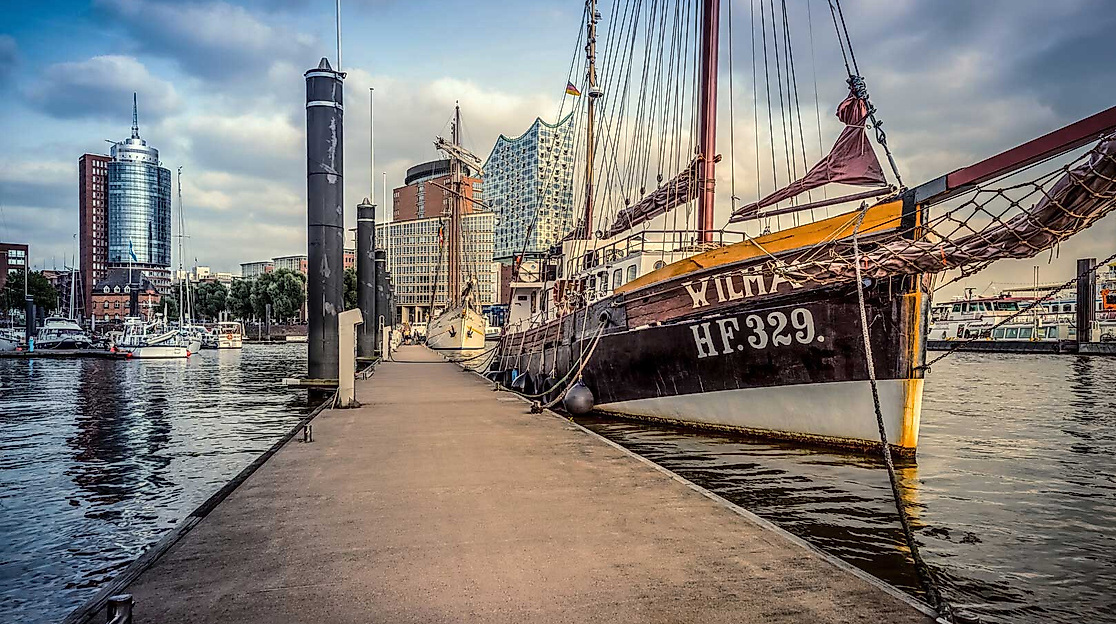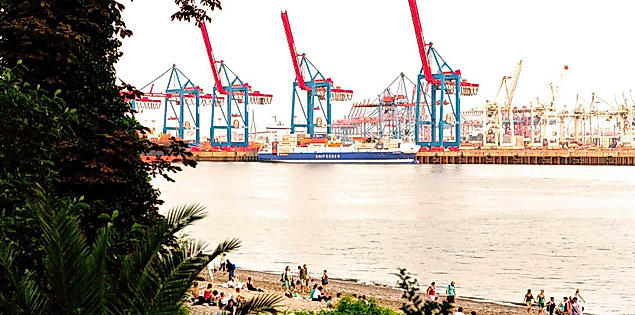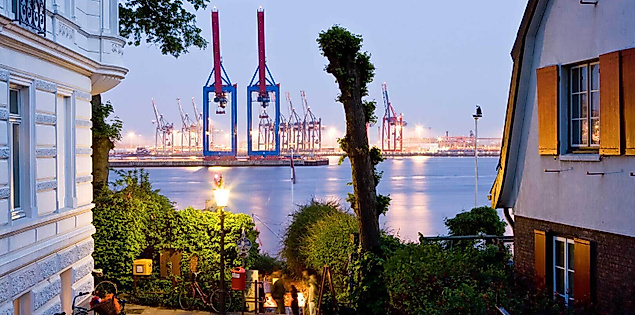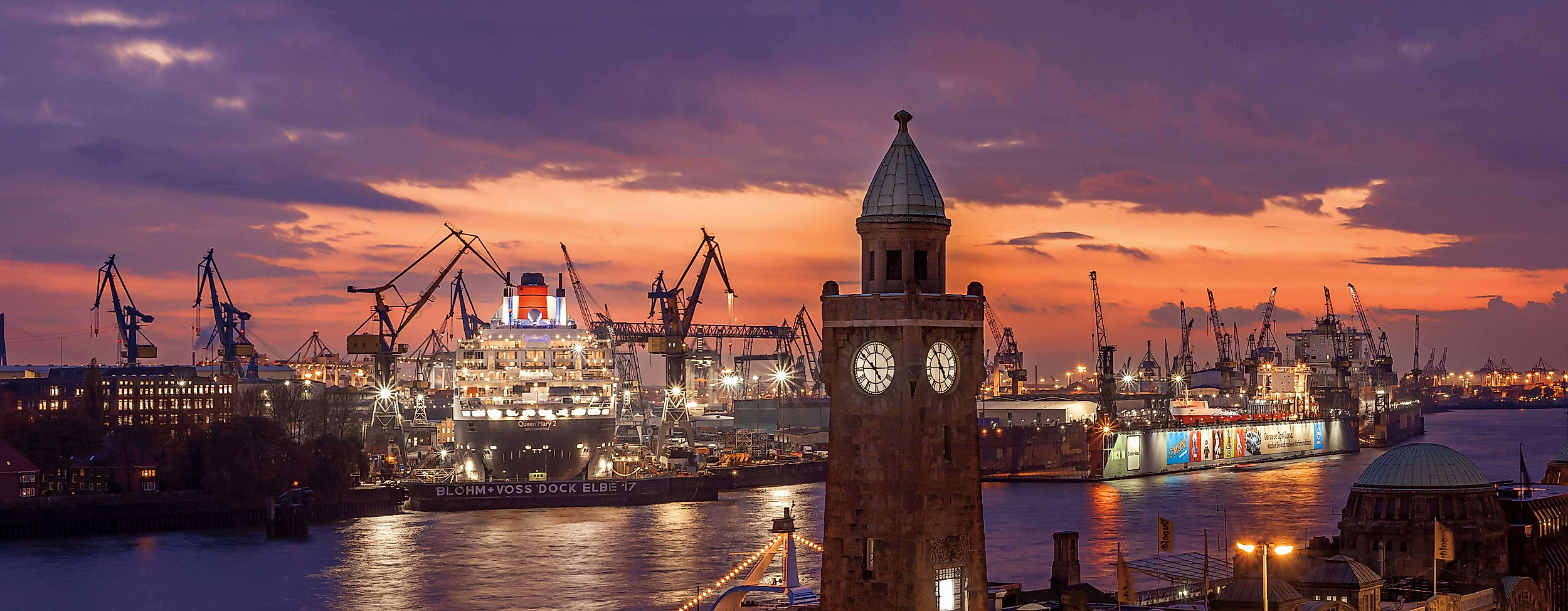

History of the Hamburg Port Anniversary
...AND HOW IT ALL BEGAN
Hamburg, the pearl on the Elbe, shines as a maritime jewel and has gained a firm place in the world of seafaring over the centuries. The heart of this maritime tradition and economic prosperity is undoubtedly the Port of Hamburg, a pulsating lifeline that makes the city a true port metropolis.
The Port of Hamburg - How it all began...
Let's dive into the history of the port. There was already a small port in Hamburg in 830. At that time, Louis the Pious expanded Hammaburg Castle into an important base for the Christianisation of the lands and peoples north of the Elbe. Ships could dock at a side arm of the Alster, but this harbour was not the origin of today's magnificent harbour.
The actual foundation of the harbour dates back to 1188, when the Counts of Schauenburg created the "New Town". These counts had already founded Lübeck in 1143 and were looking for a place with good access to the North Sea so that they could work closely with Lübeck. The location at the mouth of the Alster into the Elbe seemed ideal for this. Immediately next to the Old Town, separated by the course of the Alster (today Nikolaifleet), the Neustadt, now known as Hopfenmarkt, was built. From the beginning, the Neustadt was intended as a settlement for boatmen and merchants and developed into a transhipment point for goods.
The freedom from duty
The origins of the PORT ANNIVERSARY of Hamburg thus go back to the days of seafaring and adventure. Count Adolf III of Schauenburg granted the people of Hamburg generous privileges and eventually obtained the most important privilege of all. Shortly before Emperor Frederick Barbarossa set off on a crusade, he issued the Hamburgers with a charter on the 7th of May 1189. This charter granted the Hamburgers duty-free access for their ships on the Elbe from the city to the North Sea. This was the starting signal for the bloming time of trade of the Port of Hamburg and since then the people of Hamburg have regarded the 7th of May 1189 as the birthday hour of their beloved port. This maritime festival has been celebrated in Hamburg since 1977 and has developed into the largest harbour festival in the world, which is celebrated every year on a weekend around the 7th of May.
In recent years, however, special measures had to be taken due to the ongoing pandemic. In 2021, the Port Anniversary was celebrated digitally, and in 2022 it was held in September due to special circumstances. Despite these unusual dates and challenges, the joy of reliving this unique maritime festival on the harbour coast has not diminished. People from all over the world travel to Hamburg to join the city's residents in enjoying the maritime spectacle and celebrating the port's fascinating history. The Port Anniversary of Hamburg thus remains not only a significant event for the city, but also a symbol of Hamburg's maritime tradition and cosmopolitanism.
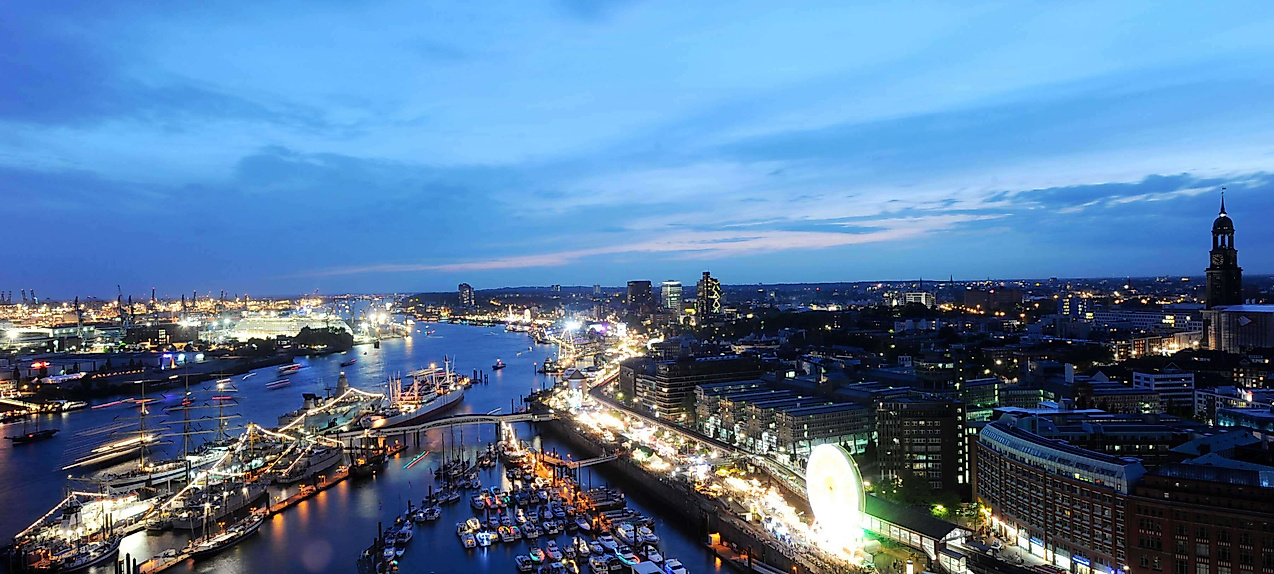
The Port of Hamburg...
- is one of the top 20 largest ports in the world
- is the third largest port in Europe after Rotterdam and Antwerp
- is the largest seaport in Germany
- has handled 119.9 million tonnes of seaborne goods
- of which 8.3 million tonnes of containers have been handled
- and a further 36 million tonnes of bulk goods
- welcomed 3,500 arrivals of container ships
- of which 1,423 arrivals of general cargo vessels
- and 85 arrivals from cruise ships.
(Source: Statista 2022)
However, the importance of the Port of Hamburg for the city goes far beyond the economic. It is a symbol of Hamburg's wide open minded and cosmopolitan flair. The Hanseatic city lives and breathes to the rhythm of the port, and its maritime history is deeply rooted in its culture. The harbour festivals and ship parades, e.g. for the Port Anniversary of Hamburg or the Cruise Days, which enliven the harbour area, not only attract visitors from all over the world, but also remind the people of Hamburg themselves how closely their identity is linked to the water.
In short, the Port of Hamburg is not only an economic engine, but also a living symbol of the city's connection to the wider world. It shapes the cityscape, the culture and the attitude to life of the Hanseatic people and makes Hamburg a truly maritime metropolis that can proudly call itself "The Gateway to the World".
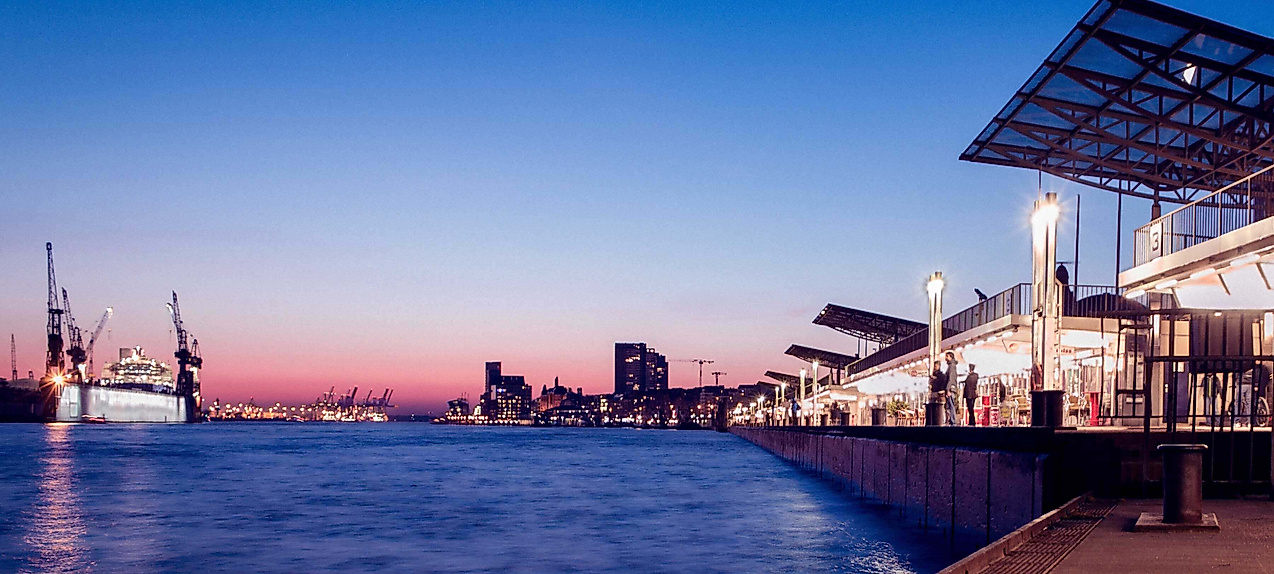
Search
Languages
Google translator for other languages
Please note that this is an automatic translation.
For better information, you can always switch to the German or English version
